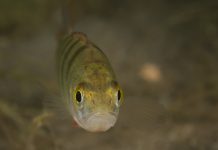CHARLESTON, W.Va. – Commissioner of Agriculture Gus R. Douglass is warning livestock owners to keep their animals away from yew plants or clippings, following the death of 21 cattle in Mingo County last week.
Very dangerous. “We are warning producers to be on the lookout for this plant, and to make sure their animals do not come in contact with it. Yew contains a very dangerous poison that works very rapidly to stop the heart and there is no antidote,” said Douglass.
Yew is a common evergreen ornamental bush, similar to hemlock, but with red berries rather than cones. The leaves are glossy, soft and dark green, measuring 1-3 inches in length with pointed ends closely spaced on the branches.
See a picture. Digital images are available at www.wvagriculture.org.
A number of yew species exist, both naturally occurring and nursery stock varieties. The nursery species, particularly the Japanese yew, are generally the toxic varieties.
People and animals are affected by the poisonous plants, most parts of which are poisonous.
Symptoms. Symptoms can usually be detected within three hours of ingesting the plant and include sudden loss of coordination, nervousness, difficulty in breathing, slow heart rate, diarrhea and convulsions.
However, in cattle, sheep and horses, the only symptom that might be noticed is sudden death. There is no treatment for acute cases.
A frequent cause of poisoning is people throwing trimmings into a pasture where animals have access to them. Animals might also get outside their fences and eat from a yew plant.
Learn more. Call the West Virginia Department of Agriculture’s Animal Health Division at 304-558-2214 or WVDA’s Plant Industries Division at 304-558-2212 for more information on plants that may be hazardous to livestock.
Get 4 Weeks of Farm and Dairy Home Delivered









